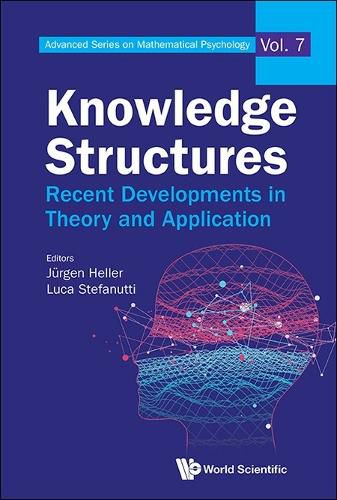Readings Newsletter
Become a Readings Member to make your shopping experience even easier.
Sign in or sign up for free!
You’re not far away from qualifying for FREE standard shipping within Australia
You’ve qualified for FREE standard shipping within Australia
The cart is loading…






Founded in 1985 by Jean-Claude Falmagne and Jean-Paul Doignon, Knowledge Structure Theory (KST) constitutes a rigorous and current mathematical theory for the representation and the assessment of human knowledge. The seminal work of these authors initiated a highly active research strand with an ever-growing literature, mostly scattered across various technical journals.Starting from a concise but comprehensive introduction to its foundations, this volume provides a state-of-the-art review of KST. For the first time the volume brings together the most important theoretical developments and extensions of the last decade and presents new areas of application beyond education, with contributions by key researchers in the field.Among the important advances covered by this book are (1) a comprehensive treatment of probabilistic models in KST; (2) polytomous extensions of the theory; (3) KST-based psychological diagnostics and neuropsychological assessment; (4) the representation and assessment of cognitive skills in problem solving, as well as procedural skills. In addition, this book also includes an overview of available software for the application of KST.
$9.00 standard shipping within Australia
FREE standard shipping within Australia for orders over $100.00
Express & International shipping calculated at checkout
Founded in 1985 by Jean-Claude Falmagne and Jean-Paul Doignon, Knowledge Structure Theory (KST) constitutes a rigorous and current mathematical theory for the representation and the assessment of human knowledge. The seminal work of these authors initiated a highly active research strand with an ever-growing literature, mostly scattered across various technical journals.Starting from a concise but comprehensive introduction to its foundations, this volume provides a state-of-the-art review of KST. For the first time the volume brings together the most important theoretical developments and extensions of the last decade and presents new areas of application beyond education, with contributions by key researchers in the field.Among the important advances covered by this book are (1) a comprehensive treatment of probabilistic models in KST; (2) polytomous extensions of the theory; (3) KST-based psychological diagnostics and neuropsychological assessment; (4) the representation and assessment of cognitive skills in problem solving, as well as procedural skills. In addition, this book also includes an overview of available software for the application of KST.